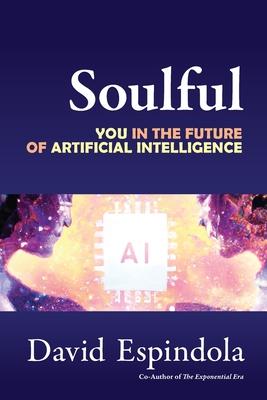Artificial Intelligence (AI) has hit an inflection point - ChatGPT has popularized its use. The implications are staggering. Machines are gradually but relentlessly encroaching on what was once believed to be the exclusive realm of tasks performed by humans. The displacement of jobs and consequent technical unemployment is inescapable. But those who can collaborate with AI will be highly rewarded.
Soulful describes the proliferation of AI and its broad implications for the world of work and society in easy-to-understand language. It explains how Human-AI collaboration will increase productivity in Education, Healthcare, Science, Manufacturing, Service, and many other areas. The book discusses the human condition, what motivates and sets us apart from robots, and how to use our intuition to collaborate with AI. It teaches how to identify and develop unique human capabilities and skills that will be highly valued in the future, such as empathy and lateral thinking.
The book explains how increased productivity due to AI and a new creation-based production system could generate abundance, changing how we think about the economy and the meaning of work. In addition to abundance, we could benefit from technology's unstoppable deflationary force, which may lower the cost of our basic needs - energy, food, communications, transport, education, housing, and healthcare - so that most humans could potentially enjoy a high-quality, low-cost living standard. It also considers the challenges in crossing the chasm between the current realities of inequality, environmental degradation, and economic uncertainty to this new environment where humanity could benefit from the sustainable production of abundance.
Soulful examines threats and opportunities from the advancement of AI and instigates deep reflections and thought-provoking discussions that will open the readers' minds to new possibilities, preparing us to enter this unfamiliar territory. It provides new insights and investigations from multiple domains, including technology, neuroscience, social psychology, economics, philosophy, and theology. It concludes with a discussion about the soul - the uniquely human trait that is difficult to describe and impossible to impart to machines.
